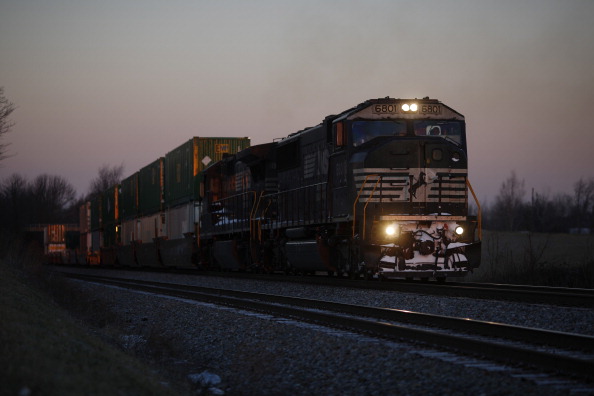The revolution in North American energy development has been made possible by technological breakthroughs in decades-old methods of energy development, which has set this nation on the path to energy security, a concept unthinkable just a few years ago.
The energy policies we choose today will determine if our nation will continue its march toward global energy leadership – a unique and once-in-a-generation opportunity. America’s dramatic increase in domestic energy production has fundamentally altered the global energy markets and more broadly the geopolitical landscape for decades to come – all while providing a much needed boost to our economy.
In order to achieve our nation’s full potential as a global energy leader all of us have to work together to ensure that our energy infrastructure is capable of safely, reliably and efficiently transporting ever-increasing amounts of domestically produced energy, whether by truck, barge, pipeline, or the focus of today’s hearing, rail.
Meaningful and lasting improvement in rail safety will only come from a holistic and collaborative approach to accident prevention, mitigation and response, and the oil and natural gas industry will continue to work with our colleagues in government, the rail industry and others on continual safety improvement.
The Memorandum of Understanding released last week between the railroad industry and the Department of Transportation, which outlines operational changes to improve rail safety, is an important step in our shared goal of improving the safety of America’s freight rail system.
While it’s true that 99.997 percent of hazardous materials transported by rail reach their destinations without incident, the oil and natural gas industry is committed to getting to zero rail incidents. Because when it comes to safety the only number that matters is zero incidents.
Getting to zero will take the long-term commitment to working collaboratively with all stakeholders and applying all of our best science, research and real-world data in a thoughtful and deliberate manner.
Being a safe steward of our nation’s energy resources and providing leadership in raising the bar on industry performance isn’t new to the oil and natural gas sector. For 90 years, API has been the world leader in developing and improving equipment and operating standards – 600 and counting – for oil and natural gas through a collaborative process that involves all stakeholders, as well as government regulators. This process is accredited by the American National Standards Institute or ANSI, which is the same organization that accredits the government’s national laboratories.
We have already assembled the best experts from our industry, the railroads, scientists and engineers and others to tackle some of the issues raised by the recent rail incidents involving the transport of crude oil. The Pipeline and Hazardous Materials Safety Administration (PHMSA) also committed to join our effort to develop a comprehensive standard that addresses the classification of crude oil to ensure we are moving that product in the safest manner possible. This includes possible safety improvements for material characterization, transport classification and quantity measurement of crude oil based on the best available science and data.
This is part of our industry’s longstanding commitment to safety. In 2011, the oil and natural gas industry helped lead the multi-industry effort that led to significant improvements in the design of tank cars. And we moved forward voluntarily with those improvements – so that this year we are now approaching 40 percent of the crude tank cars in use by our industry will exceed the current federal safety standard.
In the final analysis, the women and men of the rail and oil and natural gas industries, as well as the communities traversed by our nation’s freight rails, deserve our laser focus on this challenge. Our potential as a global energy leader is rooted in our ability to safely transport our game-changing energy resources safely every time, be it by truck, barge, pipeline or rail.
We look forward to continuing to work with our colleagues in government, in the rail industry and with others to develop a long-term, holistic and comprehensive approach to rail safety that includes prevention, mitigation and response and moves us closer to what I think is our shared goal of zero rail incidents.
By Jack Gerard
Originally posted February 27th, 2014
Energy Tomorrow is brought to you by the American Petroleum Institute (API), which is the only national trade association that represents all aspects of America’s oil and natural gas industry. Our more than 500 corporate members, from the largest major oil company to the smallest of independents, come from all segments of the industry. They are producers, refiners, suppliers, pipeline operators and marine transporters, as well as service and supply companies that support all segments of the industry

